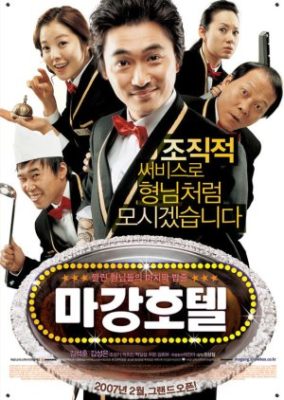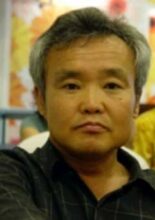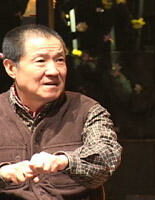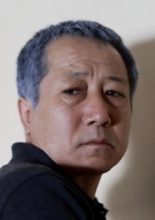The premise is that in the aftermath of the Asian financial crisis, Korean gangsters have few other options but to adapt to the relentless juggernaut of capitalism. To survive in this tough winner-takes-all business environment, even rival mobster groups should join forces through a corporate-style merger, and push for no-nonsense restructuring plans.
All of this means a significant reorganization at the merged mobster group, putting many underlings and mid-level managers out ofjobs. Top bosses, of course, stress the need to eliminate overlapping positions to maximize gangsterly profits.
One of the victims is Dae-hang, who used to be No. 2 man of the Musang gangster group. Following a fast-paced merger with another gangster group, he suddenly finds himself plunging into a dismal state of joblessness.
To get back his job, he has to complete a mission of forcing the owner of a regional hotel to pay a large sum of cash, and first-time director Choi Seong-cheol spends most of the running time describing Dae-hang’s travails at the old-fashioned hotel that is named “Ma Gang” (originally “Baek Ma Gang”, but the first letter is missing due to poor maintenance).
Dae-hang and his three underlings drive to Ma Gang Hotel which is run by an innocent-looking female Hotelier named Min-a. Dae-hang and Co. attempt the play-by-the-gangster-book “scare tactics” to get the money back from the hotel owner.


















